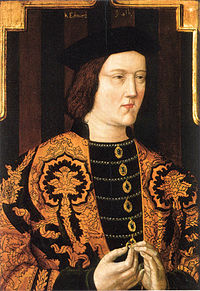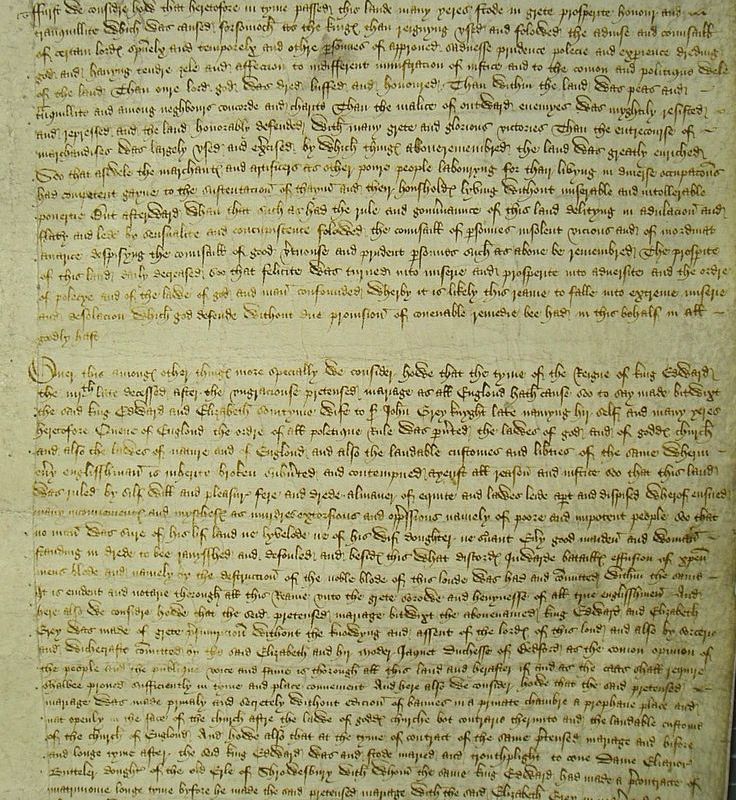We had a fairly regular replacement history teacher when I was at school. A retired teacher, his passion for the subject was plain and undiminished. There were two things he would frequently teach his class. He would walk into the classroom, wipe the floor with his finger and then stick it in his mouth, to choruses of (vaguely admiring, form the boys at least) shocked disgust. He would then loudly ask a random student ‘What did I just do!’, to which the stunned pupil blurted out ‘Wiped the floor with you finger and licked it, sir.’ ‘No I didn’t,’ he would reply, and slowly demonstrate that he used one one finger to wipe the mucky floor and then licked a different one. ‘Not everything is quite what you might think at first glance.’ This, obviously, only worked once per class, but it shouts of a need to interrogate what we see and hear.
His other great mantra was that there are only three things that you need to know about history. ‘Evidence, Evidence, Evidence’. It is a constant cry, too, of those who argue about elements of 1483, never more so than around the pre-contract story. There is no direct evidence of a pre-contract, but neither is there direct evidence to deny it. We must, instead, examine the limited circumstantial evidence that exists. Many write that the lack of direct evidence proves conclusively that there was no pre-contract, but that is to ignore the circumstantial evidence that remains.
There are three key elements to the spring of 1483 that cannot be decisively proven either way. The first is a Woodville plot against Richard, which would explain his arrest of Rivers, Grey and Vaughan, Elizabeth Woodville’s flight into sanctuary (making it an act of guilty fear), and Richard’s desire to drive them from government. What evidence is there that such a plot existed? Several sources state that Hastings called Richard to London because the Woodvilles were planning a coup in defiance of Edward IV’s last wishes. Thomas Grey, son of Elizabeth Woodville and half-brother to Edward V, is supposed to have told the Council that his family were powerful enough to rule without Richard and that they would not wait for his arrival to set a date for the coronation.

If the plot existed, it explains Richard’s subsequent actions. If not, and Mancini’s proposition that these were arms stockpiled for war against Scotland were true, it is an early sign of less than noble intentions on Richard’s part. War with Scotland had taken place the previous year. Richard had led it, which might mean he would know where weapons were stockpiled. This, though, is to assume Richard’s early evil intent. What if the weapons were being prepared for a Woodville bid for power? Stony Stratford, where Rivers had taken Edward V, was a Woodville manor, an ideal place for an ambush. Is it really impossible? I can’t say that the plot was real, but I can’t say that it wasn’t. Is it unreasonable to think Richard could have believed in a plot? Probably not. There is evidence of it. Four wagon loads of evidence.
The issue of Lord Hastings’ execution is another troublesome incident for the lack of decisive evidence. We know that Hastings was at a small Council meeting in the Tower when he was accused of plotting against Richard, hauled outside and beheaded. The discussion of Richard’s right to act in this matter is detailed in a previous post, but what about evidence? Polydore Virgil, writing around twenty years later for Henry VII and not an eye witness, claimed that ‘the Lord Hastings … called together unto Paul’s church such friends as he knew to be right careful for the life, dignity, and estate of prince Edward, and conferred with them what best was to be done.’ This seems to indicate that Hastings was, in fact, plotting against Richard even before he arrived in London. Virgil is certainly no apologist for Richard III, yet he offers evidence suggestive of a plot by Hastings. If news of this meeting reached Richard, perhaps via William Catesby, is it unreasonable that he might believe Hastings plotted to his own end, just as he had accused the Woodvilles of doing? Hastings perhaps fell foul of the paranoia he himself had sown in the Protector’s mind.
Sir Thomas More (who I am loath to classify as a provider of evidence) wrote, later than Virgil, that ‘for the further appeasing of the people’s mind, he sent immediately after dinner in all the haste, one herald of arms, with a proclamation to be made through the city in the King’s name, containing that the Lord Hastings with diverse others of his traitorous purpose had before conspired the same day to have slain the Lord Protector and the Duke if Buckingham while sitting in the Council’. This story is backed up by the eye witness Mancini, who reported that ‘to calm the multitude, the duke instantly sent a herald to proclaim that a plot had been detected in the citadel, and Hastings, the originator of the plot, had paid the penalty’. This proclamation is, in itself, evidence. No copy or note of the content survives, but following its circulation there was no widespread outrage or fallout over the execution of a man who was personally very popular in the City. This offers at least circumstantial evidence that the content of the proclamation provided enough to satisfy those listening that Hastings had been guilty of the plot he was accused of.
I have read much recently about the pre-contract story. Many pieces are quite insistent that the reader should demand evidence of the pre-contract (which is quite right) because there is none (which is quite wrong). I have read several times recently that it is foolish nonsense to believe in the pre-contract story. Once more, there is a complete lack of definitive evidence in either direction and what we have is circumstantial, but should not be completely ignored.

Here, Virgil is directly at odds with our eye witness, Mancini, who noted that when Shaa gave his sermon ‘He argued that it would be unjust to crown this lad, who was illegitimate, because his father King Edward on marrying Elizabeth was legally contracted to another wife to whom the [earl] of Warwick had joined him.’ Mancini, certainly no apologist of Richard’s, specifically tells us that the pre-contract was the basis of Shaa’s sermon, in direct opposition to Virgil’s version of the same sermon. Who should we offer greater weight to? Both writers were not friendly to Richard. Mancini was in London in 1483 and writing for a foreign audience. Virgil was not an eye witness and wrote twenty years later for the man who deposed Richard. My vote would go to Mancini’s version.
The Italian further writes that ‘On the following day all the lords forgathered at the house of Richard’s mother, whither he had purposely betaken himself, that these events might not take place in the Tower where the young king was confined. There the whole business was transacted, the oaths of allegiance given, and other indispensable acts duly performed. On the two following days the people of London and the higher clergy did likewise. All important matters are deliberated, and decrees made law by these three orders, whom they call the three estates. This being accomplished, a date was fixed for the coronation’. We may be able to confidently say that Parliament was not in fact in session at this time, but Mancini clearly intimates that deliberation took place before a decision was made, a decision upon which all of those gathered were agreed, for he does not note a single dissenting voice at this point. What was deliberated if not evidence of a pre-contract that proved Edward V’s illegitimacy?
On a side note, it strikes me as odd, too, that Mancini’s work, De Occupatione Regni Anglie Per Riccardum Tercium, is always referred to as ‘The Usurpation of Richard III’, when the title in fact translates as ‘The Occupation of England by Richard III’. Where did the word ‘usurpation’ spring from? In Latin that would be ‘usurpatione’, but that word does not appear in Mancini’s title.
The Parliament Rolls provide further evidence of the pre-contract’s existence. Titulus Regius, enrolled in the Parliament of 1484, is believed to hold the text of the petition asking Richard to take the throne in June 1483. On the subject of the pre-contract, it claims ‘that at the time of the contract of the same pretended marriage, and before and long time after, the said King Edward was and stood married and troth plight to one Dame Eleanor Butler, daughter of the old Earl of Shrewsbury, with whom the said King Edward had made a precontract of matrimony’. Here is a legal document, enacted by Parliament, stating that the pre-contract existed. It is a frequent criticism that this cannot be relied on because it was enacted by Richard’s Parliament. This is true, and has to be taken into consideration when weighing the evidence, but it should not be dismissed. It provides clear evidence that the story of a pre-contract was the reason that Edward V was declared illegitimate and Richard asked to take the throne.

Commines is frequently criticised as unreliable, never having visited England and writing a decade after the event. He was, however, politically active throughout the 1460’s, 1470’s and 1480’s. He met Edward IV, knew the Earl of Warwick and many of the other key figures in the Wars of the Roses. This is evidence from the pen of a man active in the political sphere at the time and certainly not partisan, at least not in Richard’s favour. If we must negate his evidence because he wrote a decade later, we must also utterly discount Virgil and More, upon whom many still base their views of these events unquestioningly. Commines gives evidence of a pre-contract story, told to Richard by a man involved in the proceedings, naming Stillington, yet this is not accepted as evidence of the pre-contract. If such compelling evidence cannot be offered for proper evaluation, then none will ever suffice.
It is worth asking another question at this stage. Where is the evidence that Edward IV married Elizabeth Woodville? No banns were read, there is no record, legal or chronicle, of the ceremony. We don’t even know what date it is supposed to have happened on. It reportedly took place with two witnesses, one of them Elizabeth’s mother, and a priest. Edward supposedly announced its existence several months later in Council, probably to irritate Warwick. There is no decisive evidence that it actually happened other than Edward’s assertion that it did. How is it that this is unquestionably accepted as having taken place when the idea that a similar ceremony had taken place earlier with another lady, evidence of which emerged in 1483, strong enough evidence to convince those in London at the time that they should disinherit Edward’s son, is dismissed so completely?
Edward’s word is good.
The combined word of Richard, Buckingham, many lords spiritual and temporal, officials of London, Dominic Mancini, Philip de Commines and an Act of Parliament are dismissible, and dismissed.
Looking from the point of view of evidence, the marriage to Eleanor Butler is easier to prove than that to Elizabeth Woodville.
Of course, evidence is very different to proof.
Matthew Lewis’s latest book, The Wars of the Roses (Amberley Publishing) is a detailed look at the key players in the civil war that tore England apart in the fifteenth century.
Matt is also the author of Loyalty and the sequel Honour and two brief histories, A Glimpse of Richard III and A Glimpse of the Wars of the Roses.
Matt can also be found on Twitter @mattlewisauthor.

